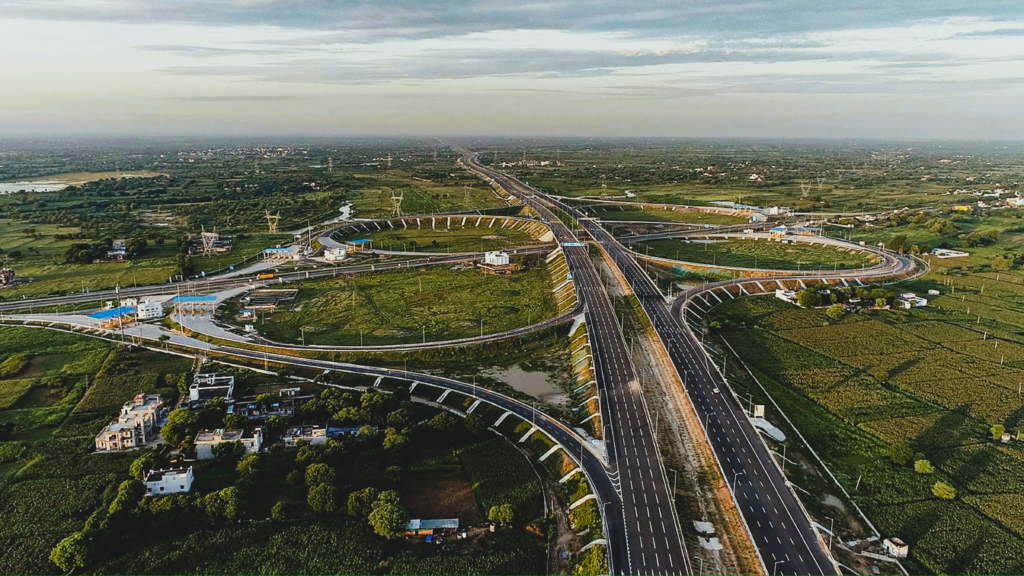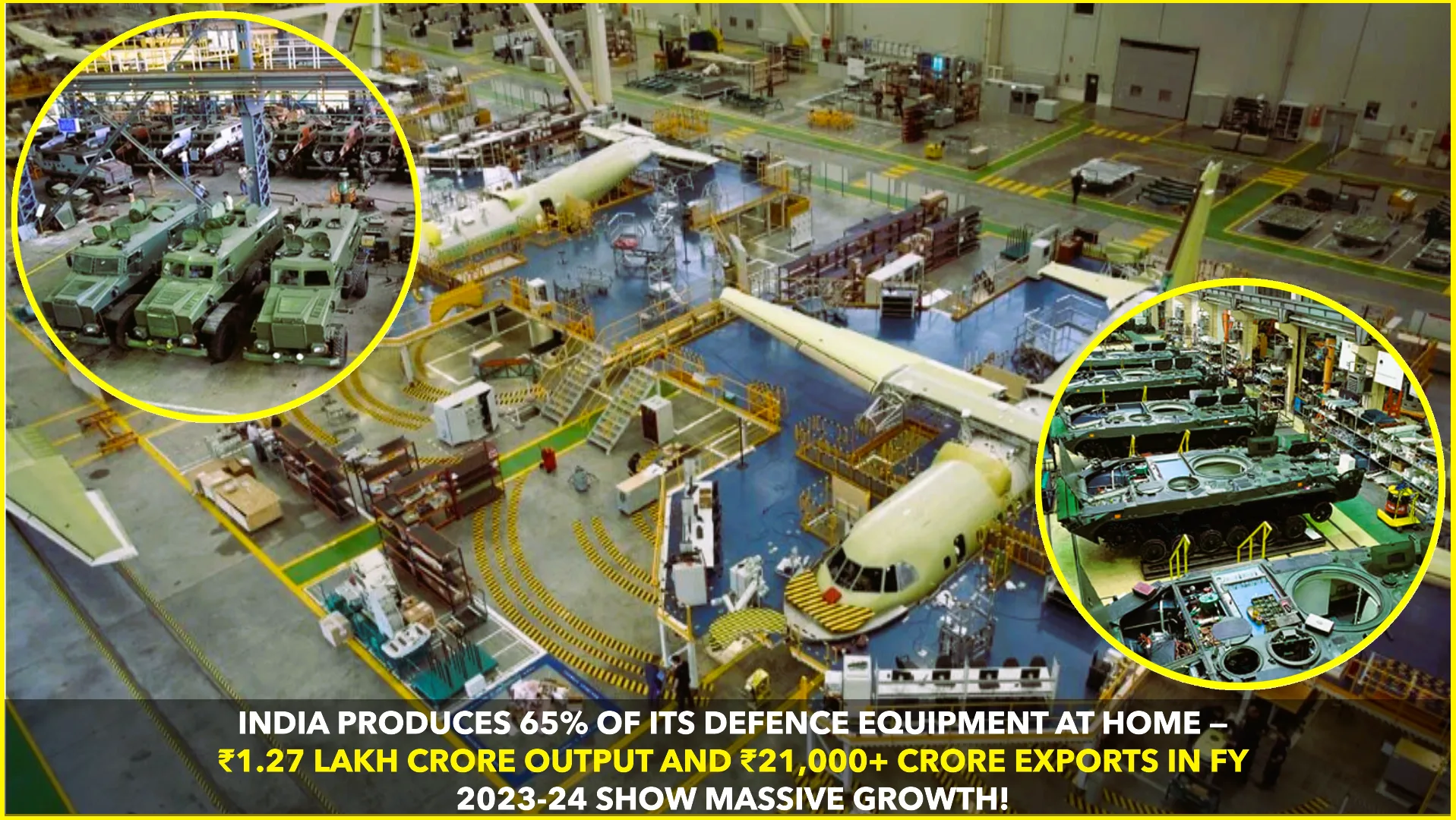India’s infrastructure drive has been nothing short of phenomenal, rewriting global benchmarks for rapid road construction. The country not only holds two Guinness World Records but also boasts a pipeline of ambitious projects set to further revolutionize its transportation landscape.
Blazing Past Records:

- 75 km in 5 Days: In June 2022, India stunned the world by constructing a 75-kilometer stretch of road in Maharashtra in a mere 105 hours and 33 minutes. This single-lane marvel shattered the previous record held by Qatar, showcasing India’s meticulous planning, cutting-edge technology, and a dedicated workforce.

- 112.5 Lane km in 100 Hours: Just eight months later, the bar was raised even higher. On the Ghaziabad-Aligarh Expressway, a consortium led by Larsen & Toubro (L&T) laid an astounding 112.5 lane kilometers of asphalt in a mere 100 hours. This achievement surpassed not only the international record but also India’s own previous feat, demonstrating the nation’s relentless pursuit of faster and more efficient construction.
The Engines of Speed:
These record-breaking projects were fueled by a potent combination of:
- Precast concrete technology: Extensive use of prefabricated slabs and components significantly reduced on-site construction time and minimized disruption.
- Automated machinery: High-tech pavers, asphalt plants, and rollers ensured smooth and efficient execution, paving the way for faster completion.
- Logistics optimization: Meticulous planning and coordination ensured a steady flow of materials and equipment, preventing idle time and delays.
- Skilled workforce: A dedicated team of engineers, technicians, and labourers worked tirelessly to translate plans into reality, showcasing India’s commitment to human capital development.
Beyond Brick and Mortar: The Ripple Effect of Progress
These record-breaking projects are not mere feats of engineering; they hold the potential to significantly impact India’s future:
- Boosting Trade and Economy: Improved connectivity will streamline logistics, reduce travel times, and open new market opportunities, giving a significant boost to India’s trade and economic growth.
- Creating Jobs and Livelihoods: The construction and maintenance of these roads will create numerous employment opportunities, both directly and indirectly, contributing to poverty reduction and overall social development.
- Enhancing Access to Amenities: Better Road infrastructure will improve access to education, healthcare, and other essential services, particularly in rural and remote areas, leading to a more equitable distribution of resources and opportunities.
Paving the Road Ahead: Upcoming Projects to Watch
India’s ambitious infrastructure plans don’t stop at past achievements. Several upcoming projects promise to further revolutionize the country’s transportation network:
- Delhi-Mumbai Expressway: This 1,386-kilometer expressway, slated to be completed by 2024, will be India’s longest and is expected to reduce travel time between the two megacities to 12 hours.

- Char Dham All-Weather Road Project: This project aims to provide year-round connectivity to four Himalayan pilgrimage sites, Kedarnath, Badrinath, Gangotri, and Yamamori, currently accessible only for a few months in the year.

Image generated through AI
- Mumbai-Nagpur Expressway: This 780-kilometer expressway will connect two major economic hubs in western India, reducing travel time to 7 hours and boosting trade and commerce in the region.

Sustainable Strides: Building for the Future
While India’s rapid road construction is commendable, it’s crucial to prioritize sustainability. Focus areas include:
- Green infrastructure: Incorporating renewable energy sources, planting trees along highways, and using recycled materials are essential steps towards reducing the environmental impact of construction.
- Smart roads: Integrating intelligent traffic management systems, real-time monitoring, and electric vehicle charging infrastructure will make roads more efficient and environmentally friendly.
- Community engagement: Ensuring community participation in planning and decision-making processes will lead to more inclusive and sustainable development.
FAQs
Q: What factors have contributed to India’s rapid progress in road construction?
- Technological advancements: Adoption of precast concrete technology, automated machinery, and innovative construction techniques have significantly accelerated the pace of construction.
- Government initiatives: Ambitious infrastructure projects like Bharat Mala Pariyojana and the National Highways Development Project have spurred investment and development.
- Streamlined processes: Simplification of land acquisition procedures and environmental clearances has reduced delays and bottlenecks.
- Private sector participation: Increased involvement of private companies has brought in expertise, efficiency, and financial resources.
Q: What are the potential challenges associated with rapid road construction?
- Environmental impact: Ensuring sustainable practices to minimize pollution, deforestation, and habitat destruction is crucial.
- Social impact: Displacement of communities and disruption of livelihoods must be addressed with adequate compensation and rehabilitation measures.
- Safety concerns: Strict adherence to safety standards and quality control measures is essential to prevent accidents and ensure long-term durability.
Q: How is India addressing sustainability concerns in road construction?
- Green infrastructure: Planting trees along highways, using recycled materials, and incorporating renewable energy sources are becoming increasingly common practices.
- Smart roads: Integration of intelligent traffic management systems, real-time monitoring, and electric vehicle charging infrastructure promotes efficiency and environmental consciousness.
- Community engagement: Involving local communities in planning and decisionmaking processes encourages sustainable and inclusive development.
Q: What are the expected benefits of India’s continued focus on road infrastructure development?
- Economic growth: Improved connectivity will boost trade, reduce logistics costs, and create new employment opportunities.
- Regional integration: Enhanced connectivity will facilitate the movement of goods, services, and people across different regions, fostering economic integration.
- Access to essential services: Better roads will improve access to education, healthcare, and other essential amenities, particularly in rural areas.
- Tourism promotion: Development of quality road infrastructure will attract more tourists, boosting the tourism industry.
India’s journey towards becoming a global leader in road construction is both remarkable and inspiring. By combining its engineering prowess with a commitment to sustainability and inclusivity, the country can pave the way for a future where progress and prosperity go hand in hand.










